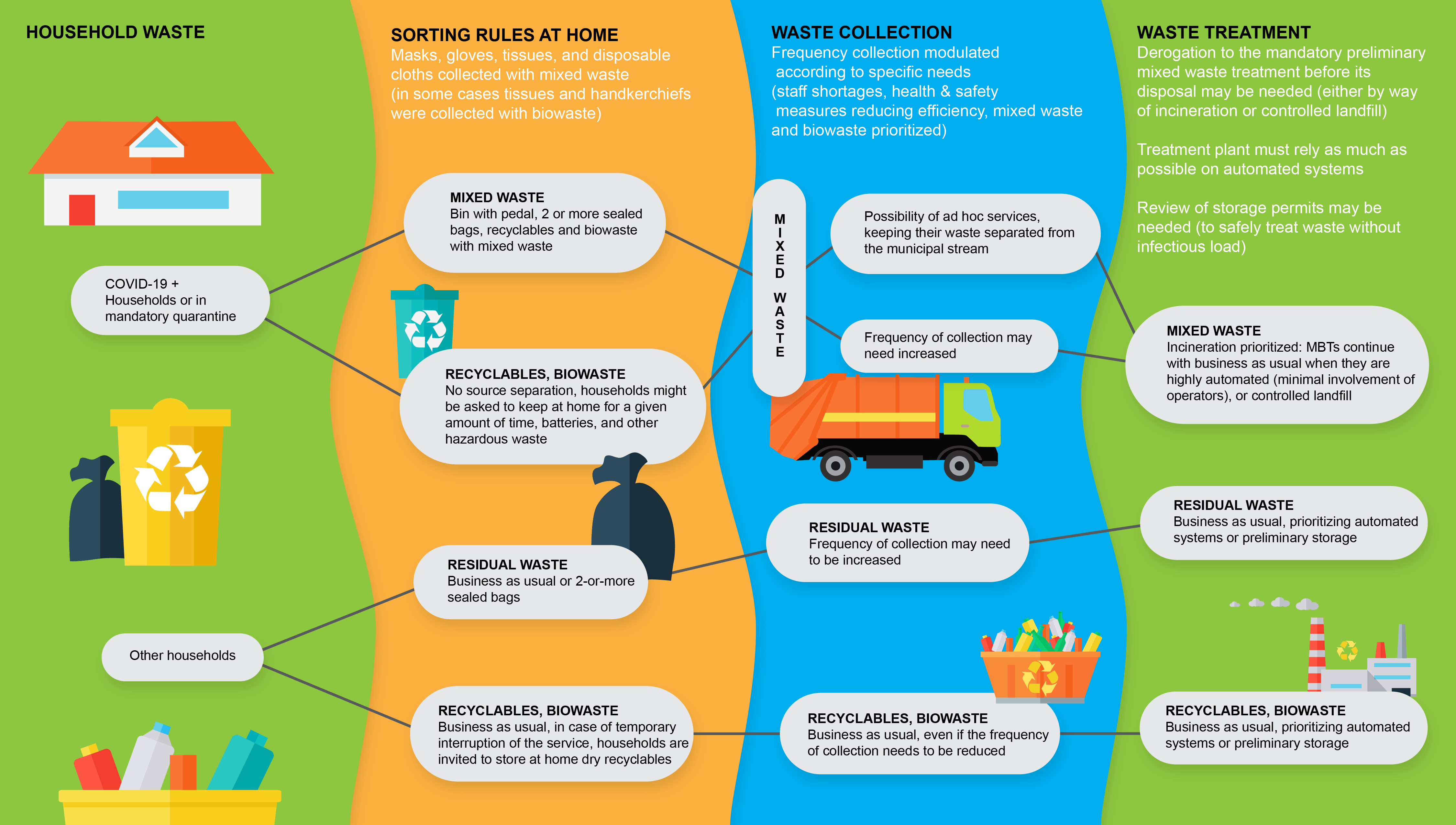For the safety of our employees and those in our community during the spread of COVID-19, we have closed our recycling drop-off center and our document shredding drop-off service. However, we will continue to accept recyclables from our municipal and commercial customers and continue with our front load and roll-off services. When we feel it is safe, we will resume all collections. We are not the only centers that have closed some of our recycling processes, due to the novel coronavirus. The illness has greatly changed the way recycling processes must not be done to maintain health and safety measures during the pandemic.
Waste Disposal is Essential, Especially During COVID-19 Outbreak
While waste disposal is an essential service, during this trying time, we and so many others must adapt to the volatile nature of COVID-19. Such changes include:
- Worker safety guidelines have changed from OSHA, SWANA, NWRA, and ISRI
- Collecting guidelines may now only allow for the collection of materials from carts and have temporarily suspended collection for bulky or yard waste.
These changes are necessary though to protect the workers from collecting the waste. The virus can live on certain surfaces for extended periods. So, if you are a carrier of COVID-19 and do not know it, you may be contaminating your waste, putting workers at risk.
Such materials the virus can remain active on are:
- Metal: 5 days
- Wood: 4 days
- Plastics: 2 to 3 days
- Stainless steel: 2 to 3 days
- Cardboard: 24 hours
- Aluminum: 2 to 8 hours
- Glass: Up to 5 days
And this is proving problematic. On April 3, the New York Department of Sanitation reported 240 workers have tested positive for COVID-19. In our region, recycling services are evolving to combat the spread to keep workers safe, with many curbside services being stopped.
So how can we continue essential services while also keeping workers and families safe?
- Follow your municipality guidelines.
- If you have or think you may have COVID-19, consider what you and your family are disposing of and how. If it can wait to be recycled, wait.
- Sort your waste so that hazardous materials remain separate.
 Quarantine Effect
Quarantine Effect
As many states move to stay at home orders with families working from home and children out of school, there is an increase in waste being created. According to Waste 360, the Quarantine Effect is similar to that of the post-Christmas influx of trash created.
Because of the stay at home orders, families are not donating as much, not recycling as they usually do, and this is causing a pile-up of waste ending up in facilities. Since March, there have been 18 fires in waste facilities which is reportedly low, however, experts find this data misleading and many facilities have been closed because not all are considered essential.
We can all play an active role in protecting our families during COVID-19. Practice safe waste disposal so as to not contaminate others, and be mindful of what you are throwing away. If you can store it until this pandemic ends, please do.
And if you have questions on our services during COVID0-19, please contact us.
